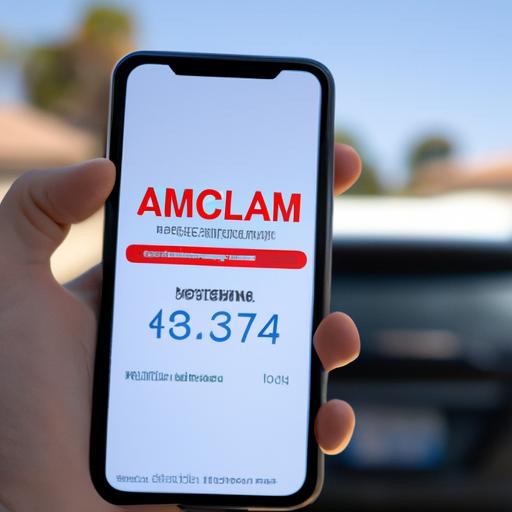Healthcare Claims Data Analytics: Unlocking Insights for Better Healthcare Management
Introduction
In today’s fast-paced healthcare landscape, data is king. But what if I told you that it’s not just about collecting data, it’s about how you analyze and utilize it? That’s where healthcare claims data analytics steps in. But what exactly does this term mean?
Healthcare claims data analytics involves the systematic examination of medical claims data to extract valuable insights and trends. From the diagnosis and treatment provided to the costs incurred, every piece of information within these claims holds a wealth of knowledge waiting to be uncovered. By harnessing the power of data analytics, healthcare organizations can make informed decisions, optimize processes, and ultimately enhance the quality of care provided to patients.
The importance of healthcare claims data analytics in the healthcare industry cannot be overstated. It serves as a vital tool for healthcare providers, payers, and policymakers alike, offering a comprehensive view of the healthcare system’s performance. By delving deep into the data, we can identify patterns, predict future trends, and even detect potential fraud. In a world where every decision matters, healthcare claims data analytics is the key to unlocking a brighter, more efficient future for healthcare management.
Benefits of Healthcare Claims Data Analytics
Improved Decision-Making
In the complex world of healthcare, decisions can make all the difference between success and failure. With healthcare claims data analytics, organizations can make informed decisions based on real-time insights derived from comprehensive data analysis. Whether it’s optimizing treatment protocols, streamlining operations, or allocating resources effectively, data-driven decision-making empowers healthcare professionals to navigate the challenges of the industry with confidence.
How can healthcare claims data analytics enhance decision-making?
By analyzing historical claims data, organizations can identify trends, patterns, and outliers that may go unnoticed through traditional methods. This data-driven approach enables healthcare providers to spot areas for improvement, make proactive adjustments, and ultimately deliver better care to patients.
Cost Reduction
In an era of escalating healthcare costs, cost reduction is a top priority for healthcare organizations. Healthcare claims data analytics provides a powerful tool for identifying inefficiencies, reducing waste, and optimizing resource allocation. By analyzing claims data, organizations can pinpoint areas where costs can be trimmed without compromising quality, leading to significant cost savings in the long run.
How can healthcare claims data analytics drive cost reduction?
Through detailed cost analysis, organizations can identify high-cost procedures, overutilization of services, and billing errors that contribute to unnecessary expenses. By addressing these issues proactively, healthcare providers can streamline operations, negotiate better contracts with payers, and ultimately reduce costs while maintaining quality care for patients.
Challenges in Healthcare Claims Data Analytics
Data Security and Privacy Concerns
In the realm of healthcare claims data analytics, safeguarding sensitive information is paramount. With the abundance of personal and medical data being processed, there is a heightened risk of data breaches and privacy violations. Ensuring robust security measures and compliance with regulations such as HIPAA is crucial to maintain the trust of patients and uphold ethical standards in data handling.
Are you confident that your healthcare data is secure? Dive into the world of data encryption and access control to fortify your defenses against potential threats.
Data Quality Issues
The old adage “garbage in, garbage out” holds true in the realm of data analytics. Inaccurate or incomplete data can lead to flawed insights and misguided decisions. Healthcare claims data, in particular, can be riddled with errors, duplicates, and inconsistencies. Addressing data quality issues through data cleansing, normalization, and validation processes is essential to ensure the reliability and integrity of analytics outcomes.
How can we trust the insights derived from flawed data? Uncover strategies to enhance data quality and unlock the true potential of healthcare claims data analytics.
Integration of Disparate Data Sources
In the complex web of healthcare systems, data often resides in silos, fragmented across various platforms and formats. Integrating disparate data sources, such as electronic health records, insurance claims, and patient demographics, poses a significant challenge for healthcare organizations seeking a holistic view of patient care. Developing interoperable systems and data-sharing protocols is key to breaking down these barriers and fostering seamless data integration.
Are you struggling to piece together the puzzle of healthcare data? Explore innovative solutions for integrating diverse data sources and streamlining your analytics processes.
Regulatory Compliance
Navigating the intricate landscape of healthcare regulations is a constant challenge for organizations handling sensitive patient data. Compliance with laws such as the Health Insurance Portability and Accountability Act (HIPAA) and the General Data Protection Regulation (GDPR) is non-negotiable, with hefty penalties for violations. Staying abreast of evolving regulatory requirements and implementing robust compliance frameworks is essential to mitigate risks and ensure ethical data practices.
How can you ensure compliance without compromising data analytics initiatives? Stay informed on regulatory updates and embed compliance measures into your healthcare claims data analytics strategy for a seamless and secure approach.
Best Practices for Healthcare Claims Data Analytics
Utilizing Advanced Analytics Tools
In the realm of healthcare claims data analytics, having the right tools at your disposal can make all the difference. Advanced analytics tools, such as machine learning algorithms and predictive modeling software, enable organizations to delve deep into the data and extract meaningful insights. By leveraging these tools, healthcare professionals can uncover hidden patterns, trends, and correlations within their claims data, ultimately leading to more informed decision-making and improved outcomes for patients.
Implementing Data Governance Policies
Data governance is the backbone of any successful data analytics strategy. By implementing robust data governance policies, healthcare organizations can ensure the accuracy, integrity, and security of their claims data. From defining data ownership and access controls to establishing data quality standards and compliance protocols, a well-defined data governance framework lays the foundation for effective data management practices. With data governance in place, organizations can trust that their claims data is reliable, consistent, and actionable.
Developing Predictive Modeling Techniques
Predictive modeling is a powerful technique that allows healthcare organizations to forecast future outcomes based on historical data. By developing predictive models tailored to their specific needs, organizations can anticipate trends, identify risk factors, and optimize resource allocation. Whether predicting patient readmission rates or forecasting healthcare costs, predictive modeling empowers organizations to proactively address challenges and drive better decision-making. In the ever-evolving healthcare landscape, predictive modeling techniques offer a strategic advantage for organizations looking to stay ahead of the curve.
Collaborating with Data Scientists and Healthcare Professionals
Collaboration is key in the world of healthcare claims data analytics. By bringing together data scientists, healthcare professionals, and industry experts, organizations can harness diverse perspectives and expertise to drive innovation and uncover new insights. Data scientists play a crucial role in analyzing and interpreting complex data sets, while healthcare professionals provide valuable domain knowledge and insights. By fostering collaboration between these stakeholders, organizations can unlock the full potential of their claims data and drive meaningful change in the healthcare industry.
Case Studies of Successful Healthcare Claims Data Analytics Implementation
Example 1: XYZ Healthcare System
At XYZ Healthcare System, the implementation of healthcare claims data analytics has revolutionized the way they deliver care. By analyzing patterns within their claims data, they were able to identify opportunities for cost savings, streamline processes, and enhance patient outcomes. Through predictive modeling techniques, XYZ Healthcare System could proactively address potential health issues, leading to improved overall wellness among their patient population.
Example 2: ABC Health Insurance Company
ABC Health Insurance Company has leveraged healthcare claims data analytics to combat fraud and abuse within their system. By scrutinizing claims data for anomalies and inconsistencies, they were able to detect fraudulent activities and take swift action. This not only saved the company millions of dollars but also safeguarded the integrity of their operations. Additionally, ABC Health Insurance Company used data analytics to better understand their members’ needs, leading to tailored services and improved customer satisfaction.
Conclusion
As we navigate the ever-evolving landscape of healthcare, one thing remains clear: healthcare claims data analytics is not just a buzzword – it’s a game-changer. By harnessing the power of data analytics, we can revolutionize the way we approach healthcare management, from improving decision-making to enhancing patient outcomes. The insights gleaned from healthcare claims data analytics have the potential to drive significant cost reductions, streamline processes, and ultimately, deliver better care to those who need it most.
In a world where data is abundant, but insights are priceless, healthcare claims data analytics offers a beacon of hope for a more efficient and effective healthcare system. As we look towards the future, it’s crucial for organizations to prioritize data analytics and embrace the opportunities it presents. By leveraging the wealth of information within healthcare claims data, we can pave the way for a healthier, more sustainable future for all. Let’s harness the power of data analytics and unlock a world of possibilities in healthcare management.






